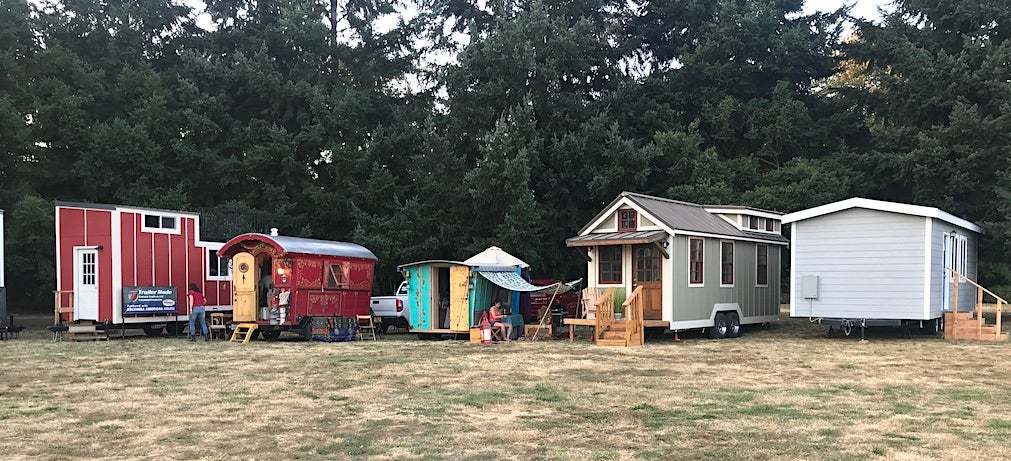Life is busy. There is a lot going on with family events, keeping up with friends, maintaining your home, meeting work obligations, and trying to fit in some time to enjoy your hobbies every now and then. It can be hard not to feel burnout regarding at least one aspect of life.
For many people, the idea of taking the plunge into tiny home living can be extremely nerve-racking and hard to wrap their head around. The thought of giving up large spaces and learning to live a more minimalist lifestyle scares them. However, as many people who have converted already know, a tiny home can change your life for the better in many ways.
Pursuing a minimalist lifestyle can reduce the risk of burnout at work. Tiny living can ease up other challenges that can add to work-based anxieties and make it nearly unbearable, such as the need to make enough money to cover rent. If you are feeling the impacts of work burnout, perhaps tiny living may be right for you.
Burnout a Growing Problem
It may not come as a surprise to many that work-related burnout is a rapidly growing problem worldwide. Slightly less than half of all employees report feeling some level of workplace burnout. This staggering number is most noticeable in small businesses, where employees may be expected to fill many different roles.
Preventing burnout at work takes a fair amount of active thought. Employees must assess exactly what causes them to feel burned out, then take steps to mitigate those triggers. Learning from experts can also help. For example, some of the busiest people always cite taking vacations and fully checking out while on them as the key to avoiding burnout and coming back rejuvenated.
Certain jobs and lifestyle choices can also make a difference in the rate of burnout. For instance, careers with high demands and low pay, such as teaching, have very high burnout rates. Meanwhile, jobs that offer mobility, good salary, and a bit of flexibility often have some of the least burnout and happiest employees.
Tiny Freedoms
Lifestyle choices can also play a significant role in workplace burnout. This is where the tiny house movement comes in! Living in a smaller home is a means of opening up a number of different freedoms that were previously out of reach.
For example, many people make the choice to life in a tiny home as a means of saving money. In most major cities, the cost of a small apartment in a decent neighborhood is higher than what any middle class worker can comfortably afford. The pressure to make enough money to not only cover rent, but also student loans, car payments, and any fun activities can drive people to work themselves to death. Lowering expenses by going tiny can offer many people financial freedom they never previously had.
Additionally, moving into a tiny home offers a great deal of mobility. Sure, you’re not likely to pick up and move every couple nights; however, if you do decide to try something else out, it is a lot easier to go. Tiny homes are a lot cheaper — and that can mean easier to sell if necessary. Many people get burned out at work because they feel trapped, but tiny home living can help limit that feeling.
Stress Relief
Beyond all of the tiny freedoms living in a tiny house can provide, there are also a number of stress relief benefits! Tiny homes are, well, tiny. This means there is far less maintenance and cleaning required to keep up with everything around the house. You can actually spend your weekends doing things you enjoy rather than dusting, sweeping, and organizing stuff that has accumulated.
Preventing yourself from accumulating clutter is another big benefit of a tiny home, as there is a lot less of it! Initially, getting rid of a lot of things and living a more minimalist lifestyle can be hard, but many people quickly realize that all of that stuff was really just stressing them out. Decluttering is a powerful benefit that can actually translate into less burnout and more balanced feelings in other parts of your life such as at work.
All this stress relief can actually provide some tangible health benefits as well. For instance, some claim that tiny home living can help improve health by reducing:
- High blood pressure
- Immune system challenges
- Chronic pain
- Headaches
- Depression
- Digestive issues
- Insomnia
- Chances of heart attack or stroke
It is no secret that lowering risks of all of these health concerns is a good thing. Many of these can also contribute to workplace burnout. Workplace burnout is a serious concern that can negatively impact the lives of millions of people every day. Tiny home living may provide some relief to workplace burnout issues because of its ability to unlock greater mobility and financial freedom.

Managing stress is the way you deal with problems. Render some relief to workplace burnout issues by living in a tiny house might preferable. A simply beautiful home!